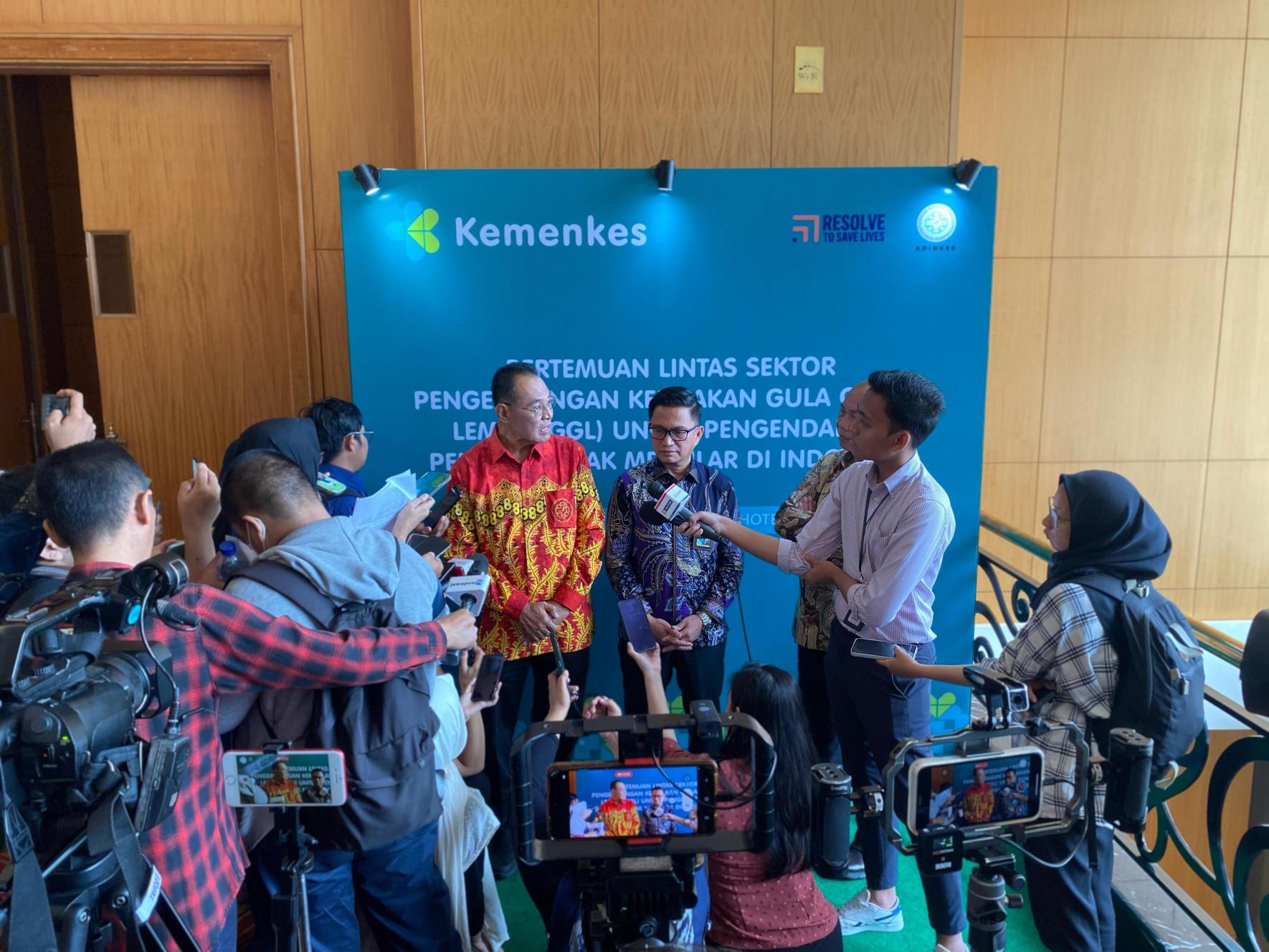August 19, 2020 – (New York, NY) Today, the Vietnamese government debuted “Reduce Salt by Half,” the country’s first major mass media public service announcement to dramatically depict the dangers of the high salt diet common Viet Nam. Part of a two-month long media campaign announced July 23, the public service announcement is the cornerstone of the government’s national advocacy effort to prompt actions to curb high salt consumption, which will also be supported by community-level education efforts. The 30-second public service announcement will run on national broadcast television and radio, and be featured on a dedicated campaign social media platform, Lower salt for better health.
The campaign was developed by the Department of Preventive Medicine, Ministry of Health of Viet Nam in collaboration with Vietnam country office of the World Health Organization with support from the global health organization Vital Strategies. Key institutes such as the National Institute of Nutrition, the Center for Health Education and Communication, and the Cardiovascular Institute have also been actively involved in developing and implementing the campaign.
“Excess salt kills more than 40,000 people in Viet Nam every year,” said Dr. Laura Cobb, Director of Nutrition Policy and Surveillance at Resolve to Save Lives, an initiative of Vital Strategies. “Public education is an important step by the Vietnamese government toward preventing non-communicable diseases such as heart attack and stroke and saving lives.”
The average salt intake in Viet Nam is 9.4 grams per day, almost double the amount recommended by the World Health Organization. High-salt diets are directly linked to high blood pressure, kidney failure and stroke. One out of every five adults in Viet Nam has high blood pressure, and one in every three deaths is due to cardiovascular disease, mainly from stroke. Data shows that the primary source of sodium in Viet Nam is salt added during home cooking and from condiments including fish sauce.
The ad depicts the disabling effect of stroke on a middle-aged man— and the burden this causes for his family. It also shows popular foods that are high in salt, such as fish sauce, and features a doctor urging people to cut salt consumption in half by adding less salt to food, dipping lightly in salty sauces and condiments, and limiting salty processed food.
The campaign’s key messages will be shared by partner organizations on their websites and social media channels, and broadcast on local radio stations and via communal loudspeakers in communities. Community education events in all 63 provinces, including salt reduction counseling at health facilities, and educational seminars and local education activities by the Vietnam Women’s Union on reducing salt in home cooking, are scheduled to take place through the end of 2020.
This campaign is the second of its kind, following a similar effort in China in September 2019, and is part of a broader effort by governments to reduce sodium using evidence-based behavior change campaigns.
Media Contact:
Erin Sykes, Resolve to Save Lives: [email protected]; +1.646.612.0001
Christina Honeysett, Vital Strategies: [email protected]; +1.914.424.3356
About Resolve to Save Lives
Resolve to Save Lives is a five-year, $225 million initiative funded by Bloomberg Philanthropies, the Bill & Melinda Gates Foundation, and Gates Philanthropy Partners, which is funded with support from the Chan Zuckerberg Foundation. It is led by Dr. Tom Frieden, former director of the US Centers for Disease Control and Prevention, and is part of the global health organization Vital Strategies. To find out more visit: https://www.resolvetosavelives.org or Twitter @ResolveTSL
About Vital Strategies
Vital Strategies is a global health organization that believes every person should be protected by a strong public health system. Our programs reach 73 countries and help prevent death and illness from noncommunicable disease, reduce harm caused by environmental factors, and support cities as engines for public health progress. We consult with governments on issues including restricting junk food marketing to kids, promoting smoke-free laws, improving indoor and outdoor air quality, and strengthening road safety. These are protections that can save millions of lives. Our team combines evidence-based strategies with innovation to help develop and implement sound public health policies, manage programs efficiently, strengthen data systems, conduct research, and design strategic communication campaigns for policy and behavior change.
To find out more, please visit www.vitalstrategies.org or Twitter @VitalStrat.


